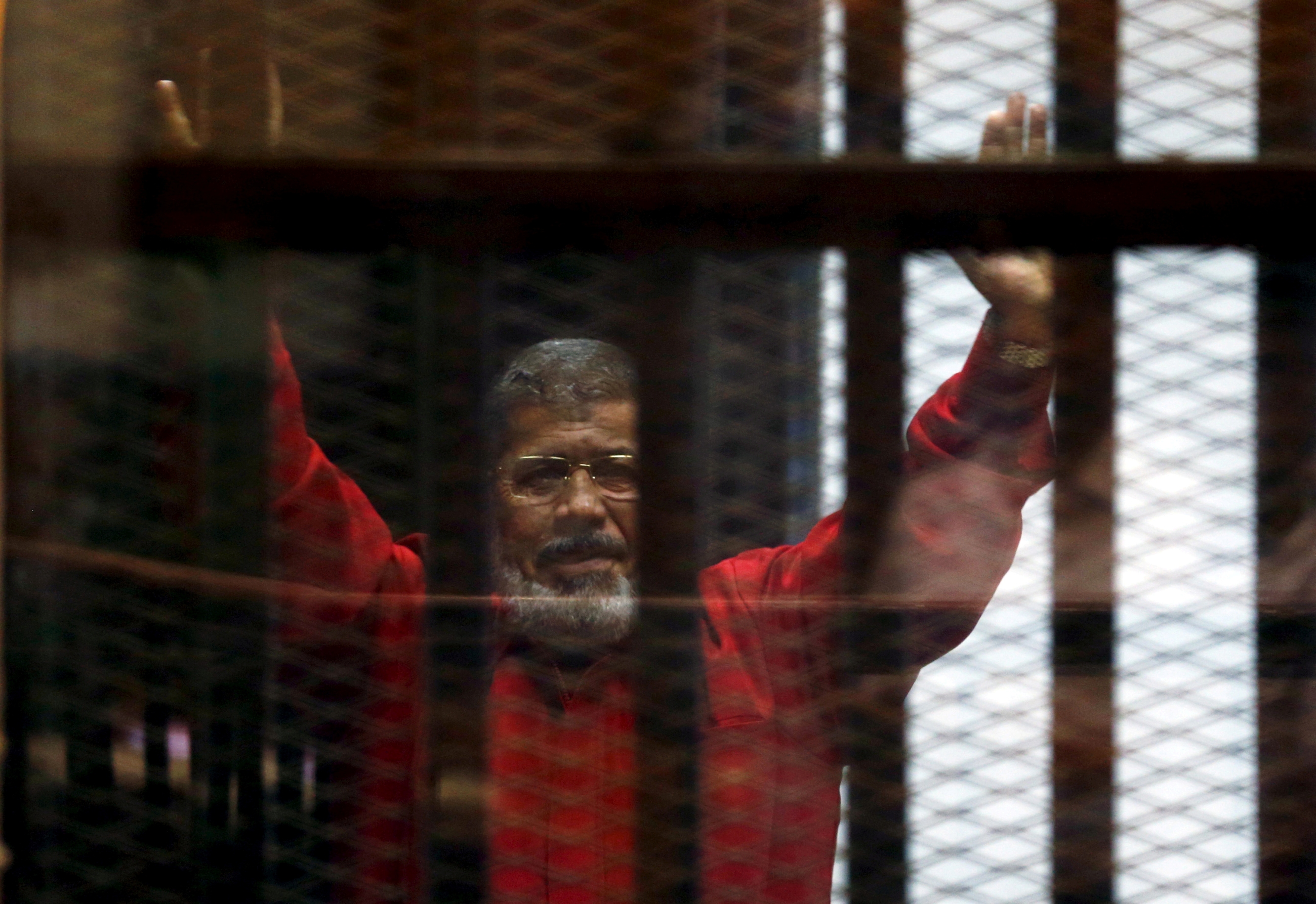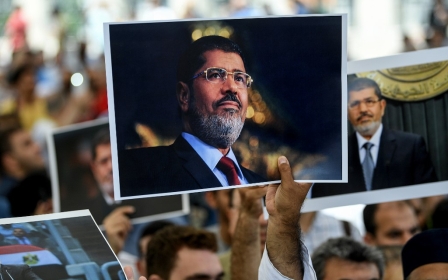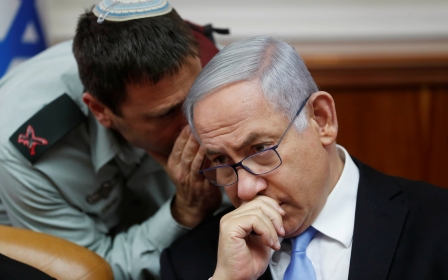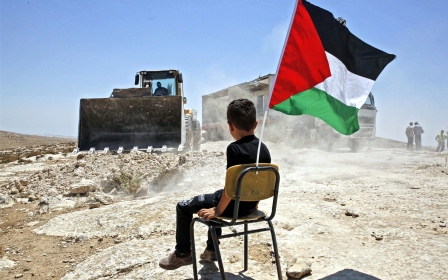Israeli press review: Fears that Morsi's death may spark uprising

Morsi's death makes headlines in Israel
Israeli newspapers have extensively covered the death of former Egyptian president Mohamed Morsi, who collapsed in court and died on Monday in Cairo.
Israeli media stressed the fact that Hamas had sent its condolences, and that condolences from Muslim leaders and organisations from around the world used the word “shahid” [“martyr” in Arabic], which in the Israeli context is often confused with the word “terrorist”.
Prime Minister Benjamin Netanyahu urged his cabinet not to comment when Morsi, who was backed by the Muslim Brotherhood, was elected in 2012 and later deposed.
His successor in Egypt, Abdel Fatah el-Sisi, has admitted he maintains close security relations with Israel, while Morsi was treated with suspicion over the Brotherhood's relations with Hamas.
Stay informed with MEE's newsletters
Sign up to get the latest alerts, insights and analysis, starting with Turkey Unpacked
Several Israeli newspapers stressed the security tensions in Egypt, which declared a state of emergency after Morsi’s death, and the risk of him becoming a martyr and sparking an uprising.
Israeli security experts told the Haaretz newspaper that they believe the Egyptian government will survive whatever protests erupt after Morsi’s death, but that they are waiting anxiously for Friday prayers to see whether the public outrage will remain under control.
Netanyahu appoints right-wingers
Although he failed in forming a coalition and a new election date has been declared, Israeli Prime Minister Benjamin Netanyahu has continued to reshuffle his cabinet.
After firing the ministers of education and justice, Netanyahu this week appointed two new temporary ministers to hold office until after the next election scheduled for 17 September.
Both are from the new Union of the Right-Wing Parties, which includes several National-Orthodox and far-right smaller parties.
The new minister of education is Rafael (Rafi) Peretz, a former combat pilot who became the chief rabbi of the Israeli military, and is chairman of the Union of the Right-Wing Parties.
Last month, Peretz declared that it is “about time the world will recognise our right over Judea and Samaria [the occupied West Bank]”.
The new minister of transportation is Betzalel Smotrich, chairman of the National Union party, which is a member of the union.
Both ministers have vowed to maintain the “status quo” on matters of religion.
This is especially relevant for the Ministry of Transportation, which has been at the centre of a controversy over its refusal to operate public transportation during the Jewish Shabbat.
Smotrich has already appointed a team to come up with a plan to use the ministry to impose the Shabbat shutdown in the West Bank, thereby advancing the process of annexation.
Smotrich wrote on Facebook: “The breath of fresh air from the US government about implementing Israeli sovereignty in Judea and Samaria is both encouraging and demanding of us a joint effort by all government ministries, in preparation for the practical consequences of sovereignty."
Police extend investigation into rape of seven-year-old girl
A Palestinian man is being held in custody and investigated over charges that he raped a seven-year-old Jewish girl in an illegal settlement in the occupied West Bank.
Prime Minister Benjamin Netanyahu, Minister of Public Security Gilad Erdan and opposition MK Avigdor Lieberman have all expressed their certainty that the man is guilty and that the rape was a political act.
Th name and picture of the man have been published in the Israeli press, although he has not been convicted. Suspects in sexual crimes are usually allowed to protect their identity during their trial.
A settler acquainted with the suspect said that police changed their version of when and where the assault happened after he confirmed the accused's alibi, Haaretz reported.
Police failed to send evidence for forensic test in the case and the child's interrogator has questioned the girl's account.
Police said on Tuesday that it will carry out further investigations due to new information it received which suggests that the suspect may be involved in a different crime.
The investigation is to involve the Shin Bet security service to focus on the identity of two other suspects who, according to the indictment, held the child down while she was raped.
Security forces have said the rape was not politically motivated.
Plan to demolish Khan al-Ahmar after election
The state’s attorney told Israel's Supreme Court on Tuesday that the government wishes to postpone the demolition of the Palestinian village Khan al-Ahmar until after the election in September.
Khan al-Ahmar is in the occupied West Bank, located east of Jerusalem with a population of 180, and has long been under threat of demolition by Israel.
The Israeli government has previously revealed a plan to demolish the entire village and displace its population, but the European Union and the International Criminal Court in the Hague have warned that such an act would be a war crime.
Last September the Israeli Supreme Court ruled that the government can demolish the village.
When the government hesitated and postponed the demolition, Regavim, the far-right organisation for colonising the West Bank, appealed to the Supreme Court in April to order the government to demolish the village.
A senior member of the Israeli Ministry of Defence told Haaretz that the US is putting pressure on the government not to destroy the village before the “Deal of the Century” is revealed, to prevent the humiliation of the Palestinian government.
*Israeli press review is a digest of reports that are not independently verified as accurate by Middle East Eye.
Middle East Eye delivers independent and unrivalled coverage and analysis of the Middle East, North Africa and beyond. To learn more about republishing this content and the associated fees, please fill out this form. More about MEE can be found here.




